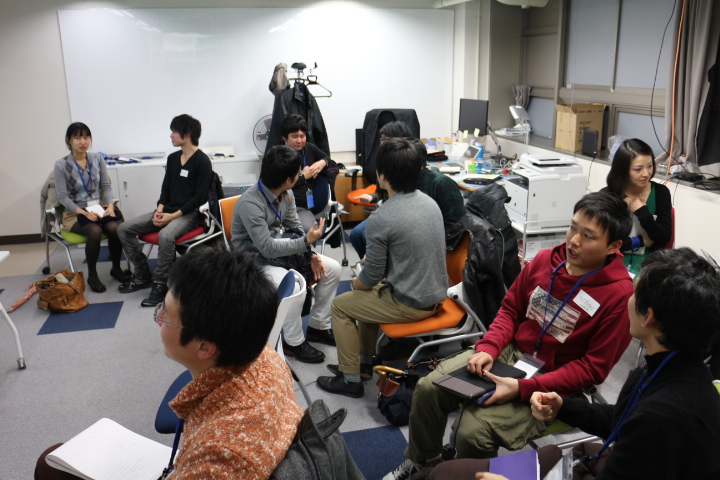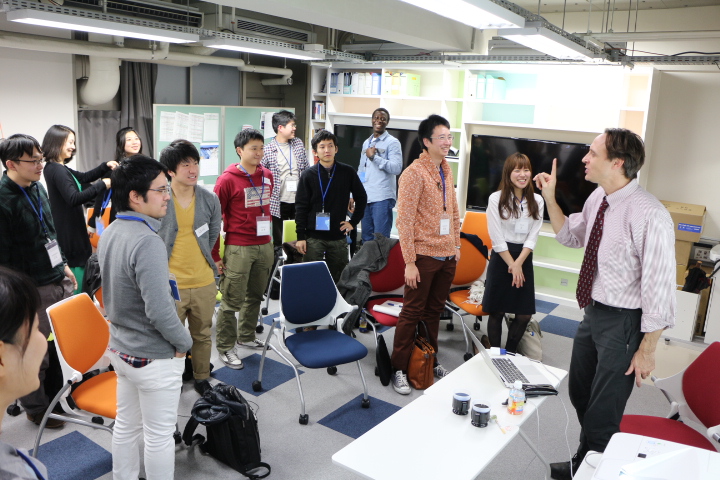

2014.01.08
H25年度山田道場 WHAT'S GOING ON:『Servant Leadership Across Cultures』
On December 20th, we invited Mr. Joseph Shaules to Yamada Dojo for his lecture entitled “Servant Leadership across Culture”. Mr. Shaules is currently the Director of Japan Intercultural Institute (http://www.japanintercultural.org/) and has worked as the lecturer of NHK English programs. This workshop was conducted in English.
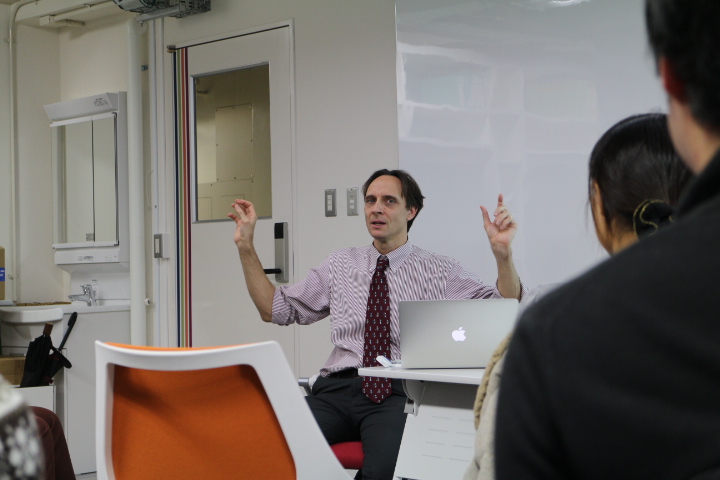
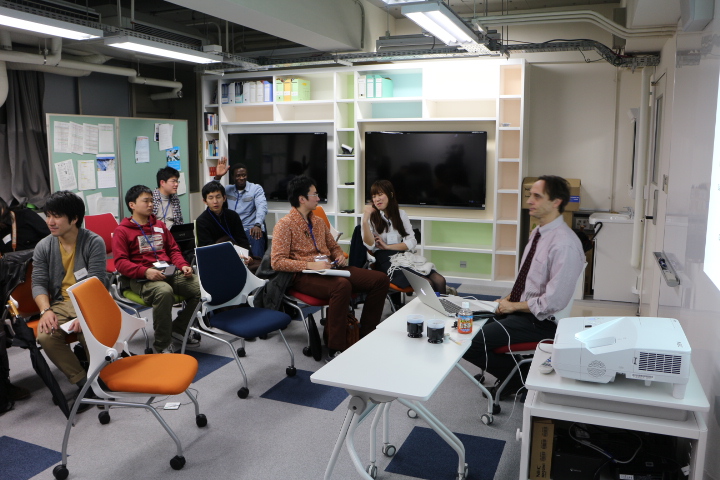
Mr. Joseph Shaules
What is needed for leaders who is active in the international situation? Mr. Shaules started with thinking what “being international” is. Many people tend to think that being international is cool, comfortable and etc. But in reality, it’s messy, stressful, confusing and frustrating, which means the world is complex circumstance. It is a big challenge for us to lead people in different cultures and languages. How can we deal with such a complex situation? In this workshop, we learned “Servant Leadership” as one of approaching ways to this problems. In servant leadership, leaders give services to the followers and then lead them. Mr. Shaules told us that the servant leader should be a “bridge person”, who connects people and society. He then showed us the four keywords for the leadership; service, vision, reconciliation and responsibility. This time, we focused on first two words.
The first theme was “service”. In this section, the main question was “what motivates you?”. At first, Mr. Shaules emphasized that having higher motivation or purpose is the most important. Every servant leader has his/her dilemma of “serving and leading”. We discussed this dilemma by taking up the example of Mahatma Gandhi who was recognized as a servant leader with following two question;
“why is he famous?” and “why is he special?”.
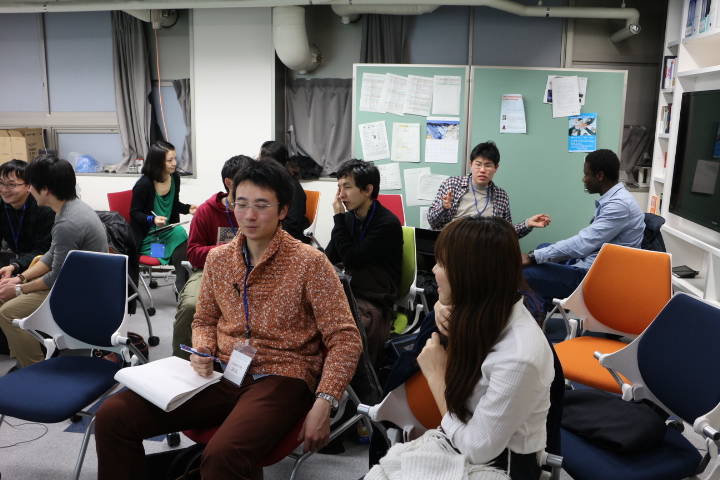
Why is Gandhi special? That’s because…
Through our discussion, we found that also Gandhi had his dilemma, which is that he had his spiritual mind and political influence. Mr. Shaules took up this dilemma which cannot be avoided for servant leaders and told us having higher motivation would solve this dilemma. In fact, Gandhi had a higher purpose to overcome his dilemma which was “independence from Britain”.
In the next section, “vision”, we learned how to understand others who we work with. Especially, in the international situation, having “intercultural mind” is important to understand people from different cultural communities. This mind is based on “empathy”. This is a kind of having a new pair of glasses to think in a new way. We have encountered the question what it’s like to have intercultural mind. Mr. Shaules answered that it’s thinking flexibly, looking at world from different cultural viewpoints and using foreign languages. Foreign language is exactly “a new pair of glasses” and learning language is great brain training for thinking in a new way and empathy. For such a brain training, cultivating “intuitive mind” plays a key part. In fact, there are two minds; reflective mind (for logical thinking) and intuitive mind (for feeling). By cultivating intuitive mind, a great power for motivation will be generated. Motivation will cheer you up to study language and to have intercultural mind. Mr. Shaules told us an interesting story of his student, who was motivated to study English further more by a little thing that happened in the daily life and became a real international person who has intercultural mind. We all understand the importance of intuitive mind thorough her story. At the end of this workshop, he conducted an activity using “cheating” rock-paper-scissors to understand reflective and intuitive mind.
Try to lose the game by cheating! You can feel the conflict of two minds!
We were confused by the conflict of these two minds. However, by trying time and time again, we got used to this complex activity. Intuitive mind can be learned by doing many times. Mr. Shaules concluded this workshop by saying that we must train intuitive mind to have intercultural mind by “trial and error” and experience with body and mind.
Most people tend to think that logical thinking is more needed for global leaders. However, through this workshop, the intuitive mind was clearly proved to be the base of leadership. Intuitive mind would be cultivated through and also outside the Dojo activity. How we act in daily life, might play an important role to train the mind. We are now looking forward to his following workshops held in January and February.
Much appreciated to Mr. Shaules for his coming and interesting workshop.
(Writer; Arinori Inagawa, M1, Department of Chemistry)









